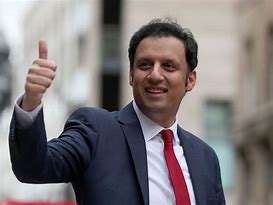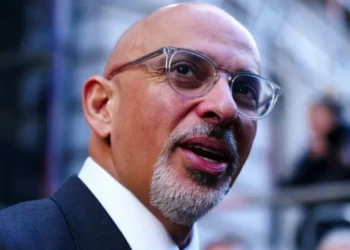The Scottish Labour leader, Anas Sarwar, has publicly supported allowing Diane Abbott to run in the upcoming general election, aligning with Deputy Labour Leader Angela Rayner’s stance.
This support comes amid internal divisions within the Labour Party regarding Abbott’s treatment and eligibility to stand as a candidate.
Despite the disciplinary process concluding with Abbott’s whip being restored, there has been criticism of the timing and handling of her reinstatement, suggesting a deliberate attempt to marginalize her within the party.
The shadow science secretary, Peter Kyle, said the general election was “about the future” and the national executive committee (NEC), the body that decides who will represent Labour, “will be making sure our party is fit for the future”.
Sarwar’s endorsement places pressure on Keir Starmer, the Labour Party leader, who has thus far remained neutral on the issue, deferring decisions to the National Executive Committee (NEC).
Sarwar told a news agency, “I would agree with Angela that Diane Abbott is someone who’s a historic figure in our party, a trailblazer, and someone who has a record of service for our party.”
“The article that Diane Abbott wrote which was not acceptable, which led to a disciplinary investigation, an investigation that has now concluded … We’ve had the disciplinary process, she’s had the whip restored, it’s now for the NEC to do the endorsements of candidates, and I hope people will recognize Diane Abbott is a trailblazer, someone with a strong history in the Labour party, but ultimately that’s a decision for the NEC.”
Anas Sarwar, The Scottish Labour leader.
Starmer’s refusal to personally endorse Abbott’s candidacy reflects broader tensions within the party between its left-wing and more centrist factions. He is facing mounting accusations of “purging” those on the Labour left before a crunch NEC meeting next week to finalize Labour’s full list of parliamentary candidates.
Kyle said Labour had attempted to conduct the investigation into Abbott’s remarks “in a way which is dignified”, and that “what we’re doing is making sure our party and everybody who represents it, represents the Labour party in the 2020s, facing forward”.
Speaking to a news agency, he said of Abbott, “She’s a trailblazer … but where we are at this moment in time is about facing the future, and the NEC will be making sure that everybody who stands for us meets the high standards that Keir Starmer has set for the Labour party.”
Abbott’s Participation Highlights Issues Of Long-Serving Members Within Labour

The debate over Abbott’s participation highlights deeper issues around diversity, representation, and the treatment of long-serving members within the Labour Party.
Meanwhile, Abbott herself has vowed to seek nomination as a Labour candidate “by any means possible,” indicating her intent to remain active in politics despite the challenges.
The controversy surrounding her potential exclusion has drawn attention to perceived biases and injustices within the party, with supporters arguing that Abbott’s contributions and historical significance warrant her inclusion in the party’s electoral efforts.
This situation underscores the complexities of internal party dynamics and the challenges of balancing historical legacy, current political strategy, and principles of fairness and inclusivity within the Labour Party.
Abbott has been critical of Tony Blair’s New Labour project, which moved the party towards the center. Her opposition to certain policies, such as the Iraq War and the Identity Cards Act 2006, reflects her principled stance on issues of peace and civil liberties.
Abbott played a significant role in supporting Jeremy Corbyn’s leadership bid and served in his Shadow Cabinet, reflecting her alignment with the party’s left-wing faction.
Her advocacy for Corbyn’s leftward push within the Labour Party underscores her influence within the party’s ideological direction.
READ ALSO: Afronitaaa and Abigail Advance To the 2024 BGT Finals






















